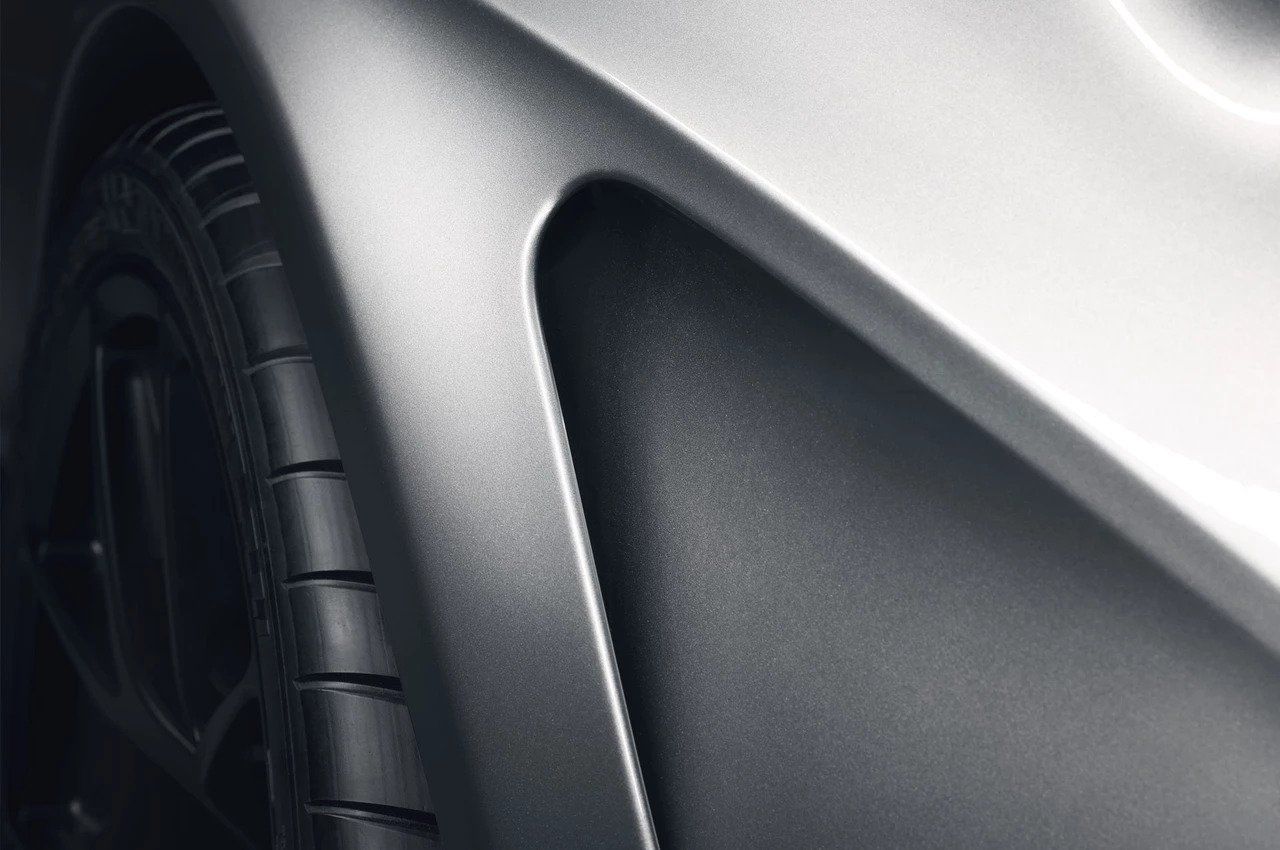The 2021 Wiesmann MF 6 is an upcoming sports car built by the German company. A spiritual successor to the GT MF 5, the MF 6 is Wiesmann's first production model since it went bankrupt in 2014. Reopened in 2016, Wiesmann confirmed a new sports car for 2020. The vehicle is known as Project Gecko and the MF 6 name has yet to be confirmed, but it's a natural choice given that the new sports car is supposed to be an evolution of previous models. Wiesmann confirmed that the MF 6 will feature a BMW engine, just like its predecessors. A teaser video and sketches posted on the company's website reveal a familiar design that reminds of the MF 5.
2022 Wiesmann MF 6
- Make: Array
- Model: 2022 Wiesmann MF 6
- [do not use] Vehicle Model: Array
Brief Wiesmann history
Wiesmann was established in 1988 by brothers Martin and Friedhelm Wiesmann, an engineer and a businessman. The first car, the MF 30, left the factory in Dulmen, Germany, in 1993.
The MF 30 was quickly replaced by the MF3, a slightly modified roadster with a 338-horsepower, 3.2-liter inline-six from the BMW M3 (E46).
The MF 3 was followed by the FT MF 4 in 2003. This time around offered as a coupe only, the GT MF 5 ditched the six-cylinder engine in favor of 4.4-liter V-8 unit rated at 402 horsepower and 443 pound-feet of torque. In 2009, Wiesmann launch the limited-edition GT MF 5. Powered by a 5.0-liter V-10 sourced from the BMW M5 and M6 (547 horsepower and 502 pound-feet of torque), the GT MF 5 was built in less than 200 units. This was the most expensive Wiesmann ever, priced from €189,500.
Exterior
There are no official photos of the MF 6 to run by, but the teasers and the sketches released by Wiesmann suggest that the new coupe will look similar to the old GT MF 5. This isn't surprising given that the German firm stressed that Project Gecko is "more evolution than revolution."
The layout of the headlamps also seems similar to the old model in the sketches, with two large lights stacked diagonally. The smaller turn signal is no longer there, but it might have been incorporated into one of the main LED lamps. The bumper features a brand new design with massive vents on the sides. The outlets appear to be part of the same sculpted area that incorporates the lights, so it may change the overall look of the front fascia quite dramatically. The two thin vents mounted above the splitter remind of the old GT MF 4.
There aren't any obvious hints as to what to expect from the profile and the rear end, but a teaser showing an MF 6 under a cover suggests that the coupe might look similar to its predecessors from the sides. We can notice the same thing if we look at one of the prototypes spotted on a trailer. And that's a cool thing.
It's a design we don't see too often nowadays and harkens back to some coupes from the 1960s or even some luxury two-doors from the 1930s.
No shots from the rear just yet, but I think Wiesmann has taken a familiar approach with wide, muscular fenders with integrated taillights. The spy shots suggest a similar rear end to the GT MF 5, with minor changes to the fenders and the exhaust pipes, plus a new wing. But perhaps we'll see sleeker lights units that are integrated seamlessly into the body and a proper rear bumper with a diffuser and a quad exhaust layout.
Interior
Wiesmann provided no hints as to what we will find inside the cabin, so we're completely in the dark here. The MF 5 features quite an interesting interior, with a center dash section packed with analogue dials and a center console with chromed controls. The instrument cluster was unusually small for a modern car, but that was mostly because all important performance data was visible on the dials in the center dash. A rather unorthodox take in a sports car, but a refreshing sight in a very uniform market.
The MF 5 was also quite luxurious. Wiesmann offered leather upholstery that covered not only the seats and the center console, but parts of the dashboard and the door panels too, contrast stitching, and polished trim. It also featured sports seats for enhanced lateral support, making it ideal for weekends at the track.
While the MF 6's exterior will be similar to the MF 5's, I'm expecting the same inside the cabin. The MF 5 looks rather dated in this department, so Wiesmann will probably go with a more modern design. Forget about the analogue dials in the center stack, as they will be replaced by an infotainment screen. Maybe Wiesmann will borrow some technology from BMW here?
The cabin should remain luxurious, so expect leather upholstery and aluminum trim as standard. The options list should be richer than before and include Alcantara inserts, carbon-fiber trim, and even carbon-fiber seats and wireless charging.
Drivetrain
There's no specific information about this mill, but it's probably the latest iteration of the S63 powerplant from the F90-generation BMW M5. And the best argument for this is that the M5 comes with 591 horsepower and 553 pound-feet - or 617 horses in Competition trim - and that's more than the GT MF 5 had. You obviously want more oomph in the newer model, so the M5's engine makes a lot of sense here.
Specifically, this twin-turbo, 4.4-liter V-8, an evolution of the S63 engine from the previous generation, packs more punch than the 5.0-liter V-10 from the E60 M5. The V-10 is rated at 547 horsepower and 502 pound-feet of torque, so the V-8 generates an extra 44 horsepower and 51 pound-feet in base trim.
Either way, it's a big improvement.
Just like in the BMW M5, the V-8 will mate to an eight-speed automatic transmission in the MF 6. The unit will likely benefit from the same type of upgrades as in the M5. The dual-clutch unit will deliver quicker up shifts, smoother down shifts, and will enable the German coupe to hit benchmarks quicker.
Wiesmann already published performance figures and claims that the MF 6 will reach 62 mph in 3.5 seconds. That's a whopping four tenths quicker than the GT MF 5. Top speed also increases from the previous 193 mph to "more than" 199 mph.
Extra power and torque aren't the only features that make the MF 6 notably quicker than its predecessor. Wiesmann also developed a new platform that's notably lighter than the previous one. It also features a perfectly balanced 50:50 weight distribution, which improves dynamics.
Good news for old-school enthusiasts!
Prices
Pricing is obviously a mystery at this point, but since the old GT MF 5 retailed from €189,500, the MF 6 is very likely to cost at least €200,000 before options. That's a bit expensive for a sports car made by such a small automaker, but the exclusive features and the solid performance will keep it appealing to collectors and drivers that want something different.
Competition
Mercedes-AMG GT R
Today's market is packed with sports cars, but most of them are mid-engined, so the Wiesmann MF 6 will be rare gem due to its front-engined layout. The first competitor that comes to mind is the Mercedes-AMG GT. Also hailing from Germany, it's Merc's go at the Porsche 911, but with a front-engine architecture. The AMG GT is available in four different versions, but all of them are less powerful than the upcoming MF 6. The most potent version of the German coupe is the AMG GT R, which also features enhanced aerodynamics and is essentially a track-ready vehicle. Powered by a twin-turbo, 4.0-liter V-8, the GT R comes with 577 horsepower and 516 pound-feet of torque on tap. But despite being a bit less powerful, the GT R is actually quicker, needing 3.2 seconds to hit 62 mph from a standing start. Top speed is somewhat similar at 198 mph. Impressively enough, the AMG GT S, which cranks out "only" 515 horsepower and 494 pound-feet, is just as quick as the MF 6 with a sprint time of 3.5 seconds. The bad news for Wiesmann is that the AMG GT is notably more affordable.
Read out full review of the 2019 Mercedes-AMG GT R
Conclusion
Wiesmann has been an underdog of the performance car market since day one, but it left many drivers and reviewers impressed throughout its short-lived career. While its design is somewhat controversial for a modern car and it costs notably more than the competition, the Weismann coupe deserves its comeback. And it seems that it will do it with a bang thanks to a new, lighter platform, a revised design, and a powerful M5 engine under the hood. Let's hope that the MF 6 will do better than its predecessor and keep the company away from another bankruptcy.
























